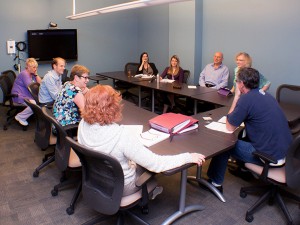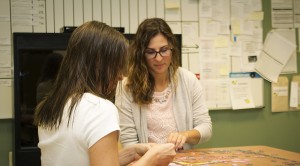Menu
- Home
- About Us
- Patients & Visitors
- Join Our Team
- Programs & Services
- Contact Us
Our aim is to help make you become a partner and participant in your loved one’s care; provide you with information about our visiting routines; and help you feel comfortable and welcome.
*Note: although we serve the Northeast Region of Ontario, requests for forensic psychiatric assessments can come from anywhere in the Province.
Definitions to help you understand our service:
|
|
|
Driving and Parking Directions:
To visit Deer or Heron (secure) lodges, and once you have parked your car in Lot #9, walk around to the back (past staff parking lot #10) and turn right to the Mental Health and the Law secure entrance next to the white garage door. Our security personnel will register your visit and inform the staff of your arrival. Families with monthly parking passes may park their vehicle in one of our registered spaces in Lot #12. Our security personnel will register your vehicle and provide you with an authorization tag for your car.
*Note: we encourage you to plan your visits ahead of time by contacting your loved one’s assigned social worker.
What to expect when you visit:
Security personnel will inform the lodge staff of your arrival and you will be provided with a locker to store your personal belongings. Your visit may not always be possible on the lodge; however, we are pleased to provide comfortable family visiting rooms or you can enjoy your visit in the hospital’s cafeteria.
|
|
|
Visiting Deer or Heron Lodge:
Given the nature of our secure environment, your visit may be supervised and we will ensure as much privacy as possible. Deer Lodge is our 14-bed co-ed secure unit, where inpatient court-ordered assessments for Fitness to Stand Trial and Criminal Responsibility are completed. Deer Lodge is divided into two sections. One is for patients who are undergoing assessments and waiting to be returned to court. Once patients are found either Unfit to Stand Trial or Not Criminally Responsible they are usually transferred to the other section of the lodge where they can begin their rehabilitation.
|
|
|
|
Visiting Owl or Osprey Lodges:
Owl Lodge: report directly to the entrance and ring the doorbell.
Osprey Lodge: enter the lodge and report directly to the team station.
*Note: please inform the staff when your visit has ended.
|
|
|
Ontario Review Board (ORB):
Patients found Unfit to Stand Trial or Not Criminally Responsible must have an initial hearing with the Ontario Review Board (ORB). The ORB will hear evidence from your loved one’s lawyer, the Hospital and the Crown Attorney. The goal is to prepare a disposition order that identifies the required security level and other provisions that will help develop individualized treatment and risk management plans. This happens within 45 days after the court finding.
 As patients wait for their initial hearing, access is restricted to Deer Lodge. Within two weeks after the hearing, the ORB will send the Hospital a Disposition Order which will be delivered and explained to your loved one by our patient advocate. The orders are good for a year and they guide treatment and risk planning which we want to do in partnership with you and your family.
As patients wait for their initial hearing, access is restricted to Deer Lodge. Within two weeks after the hearing, the ORB will send the Hospital a Disposition Order which will be delivered and explained to your loved one by our patient advocate. The orders are good for a year and they guide treatment and risk planning which we want to do in partnership with you and your family.
Once we receive the Disposition Order and a rehabilitation bed becomes available, the patient is moved to either Heron Lodge (secure unit with double locked doors) or to Owl Lodge (minimum secure unit with one locked door.) The order will specify the level of security but may sometimes allow for a hybrid order, which means that either secure or general admission is permitted at the discretion of the Hospital.
Support:
We provide outpatient or video court-ordered assessments for Fitness to Stand Trial and expert testimony for the courts, and care planning with families and partners via video.
|
|
|
|
Our goal for patients is to ensure their safe reintegration back into the community with the support of family members; as such we also provide specialized assessments to assist with treatment planning, risk evaluation and risk management to support a safe, gradual sustainable resettlement in the community.
Other important transitional support is provided by our:
|
|
|
Patients have access to a number of hospital wide services including the Patient Advocate, Aboriginal Counsellors (RAMHS), Peer Support Specialists and an Art Therapist. Our inter-professional team includes the disciplines of psychiatry, psychology, nursing, addictions, social work, case management, occupational therapy, behaviour therapy, horticulture therapy, recreation therapy, concurrent disorders and vocational rehabilitation.
The patient’s recovery is paramount in the rehabilitation process. With the help of staff, the patient will develop “Personal Recovery Goals”. Goals are created and prioritized according to the patient’s preference, their clinical presentation and in accordance with the provisions of the ORB disposition order.
The treatment approach being implemented in the Mental Health and the Law Service is the “ONE PATIENT ONE PLAN”

The Main Principles of One Patient One Plan are:
How does my loved one get well?